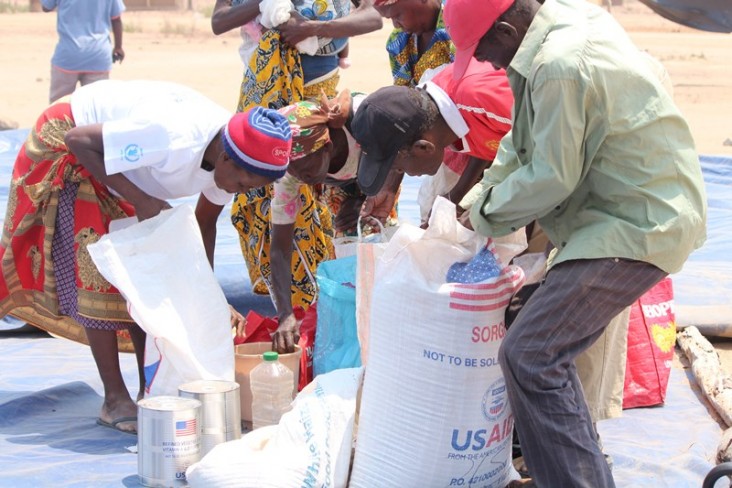Speeches Shim

Agriculture and Food Security
Zimbabwe’s economy and food security situation remains fragile. Poor weather conditions, including erratic rainfall and long dry spells, contributed to increased humanitarian needs across the country, while the deteriorating economic situation exacerbated the already rising vulnerability in both rural and urban communities.
Zimbabwe experienced a drought in the 2018/2019 agricultural season, resulting in large-scale crop failure. The 2019 Zimbabwe Vulnerability Assessment Committee projects an estimated 5.5 million rural Zimbabweans to be food insecure during the peak of the 2019/20 lean season, with 3.8 million people in need of food assistance. Urban vulnerability is also on the rise, with the Ministry of Public Service, Labour and Social Welfare estimating that up to 2.2 million people in urban areas are food insecure. Findings and recommendations from the ongoing urban livelihoods and vulnerability assessment will further inform the urban situation and humanitarian actions.
The United States is the largest bilateral donor to food assistance in Zimbabwe and is part of a coordinated response to the humanitarian situation. USAID provided US$86.9 million in funding to respond to the critical food security situation in the lean season between October 2019 and March 2020. The contribution will ensure that over one million rural Zimbabweans have adequate food supplies before the next harvest.
While USAID recognizes that there is currently a need for this type of support, humanitarian assistance alone is not enough. The root causes of food insecurity and poverty must be tackled for Zimbabweans to end chronic food insecurity. USAID, through the Office of Food for Peace and the Bureau of Food Security, supports food security activities that are designed to help people transition from humanitarian assistance to food and nutrition security and self-reliance. Activities focus on increasing production and productivity, promoting small and medium sized enterprises, and increasing the resilience of vulnerable communities. USAID has provided US$164 million over seven years to address the underlying causes of chronic food insecurity and malnutrition and to strengthen agriculture and livelihoods for over a million vulnerable Zimbabweans.
Emergency Disaster Relief
Tropical Cyclone Idai hit Zimbabwe on March 16 and 17, 2019. Cyclone-induced rains caused catastrophic flooding in Chimanimani and Chipinge Districts of Manicaland Province, destroying homes, livelihoods, road networks, schools, and water points. An estimated 600,000 people were affected, and many people lost their lives or loved ones. USAID, through the Office of Food for Peace and Office of Foreign Disaster Assistance, has contributed over US$7.9 million toward cyclone relief efforts in Zimbabwe. U.S. humanitarian assistance to help people in Mozambique, Malawi, and Zimbabwe affected by Cyclone Idai is now more than $109 million. Through Food for Peace, the Office of Foreign Disaster Assistance, and the Bureau of Food Security, USAID has provided support for emergency food assistance, shelter, agricultural recovery, and water, sanitation and hygiene initiatives through a number of UN and NGO partners.


Comment
Make a general inquiry or suggest an improvement.